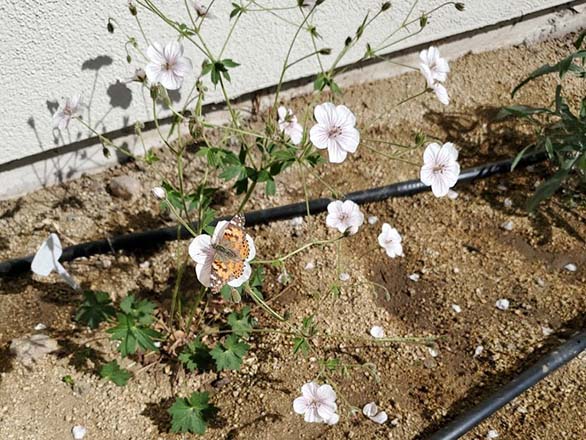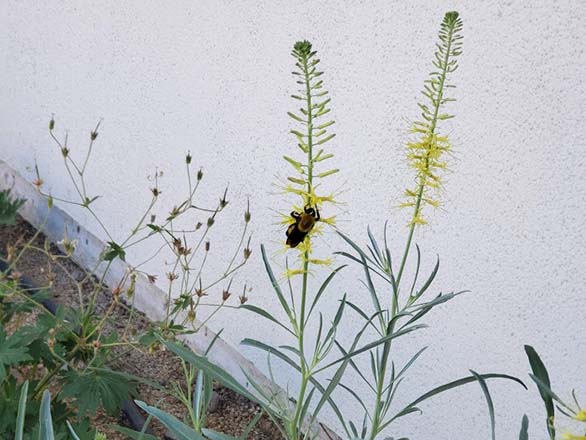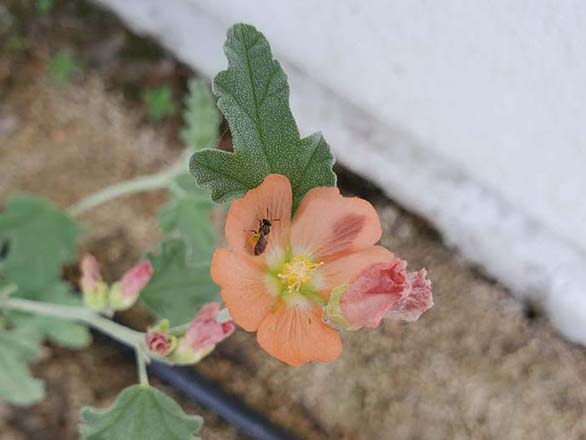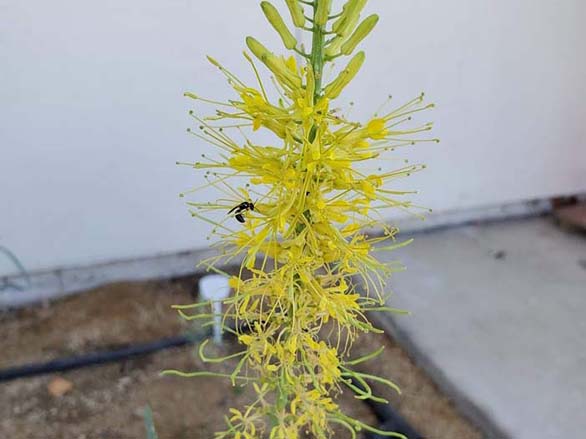One of the three residential-scale pots for this research, the Washoe County Extension Office Garden was planted in September 2018 with the help of the Washoe County Master Gardener Program. The plot soil consists of native soil and fill soil covered with decomposed granite mulch and the plants are drip-irrigated using inline drip emitters in a grid pattern.
Of the first round of plantings, transplant success was roughly 90 percent as of May 2019. Several species have bloomed as of May 2019, including Agastache urticifolia, Baileya multiradiata, Geranium viscossimium, Ipomopsis aggregata, Oenothera caespitosa, and Penstemon eatonii.






